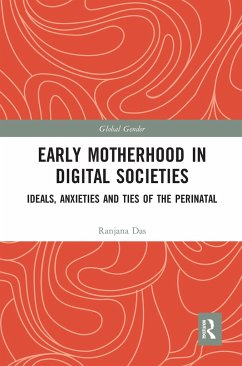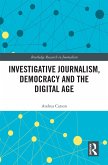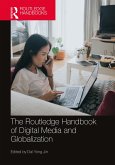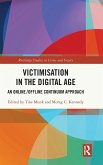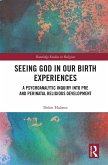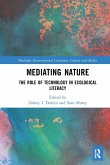Early Motherhood in Digital Societies offers a nuanced understanding of what the digital turn has meant for new mothers in an intense and critical period before and after they have a baby, often called the 'perinatal' period.
The book looks at an array of digital communication and content by drawing on an extensive research project involving in-depth qualitative data from interviews with new mothers in the United Kingdom and online case studies. These stories are analysed to investigate the complexity of emotions around birth, the diversity of birth experiences and the myriad ways in which television, the press and social media impede and empower women giving birth. The book asks: what does the use of technology mean in the perinatal context and what implications might it have for maternal well-being? It argues for a balanced and context-sensitive approach to the digital for maternal well-being in the critical perinatal period.
By doing this, the book fills a gap in media studies, addressing itself to gaps within audience analysis, health communication and parenting. It will be essential reading for research and teaching modules in media studies, cultural studies, sociology, health communication and sociology of medicine and health.
The book looks at an array of digital communication and content by drawing on an extensive research project involving in-depth qualitative data from interviews with new mothers in the United Kingdom and online case studies. These stories are analysed to investigate the complexity of emotions around birth, the diversity of birth experiences and the myriad ways in which television, the press and social media impede and empower women giving birth. The book asks: what does the use of technology mean in the perinatal context and what implications might it have for maternal well-being? It argues for a balanced and context-sensitive approach to the digital for maternal well-being in the critical perinatal period.
By doing this, the book fills a gap in media studies, addressing itself to gaps within audience analysis, health communication and parenting. It will be essential reading for research and teaching modules in media studies, cultural studies, sociology, health communication and sociology of medicine and health.

